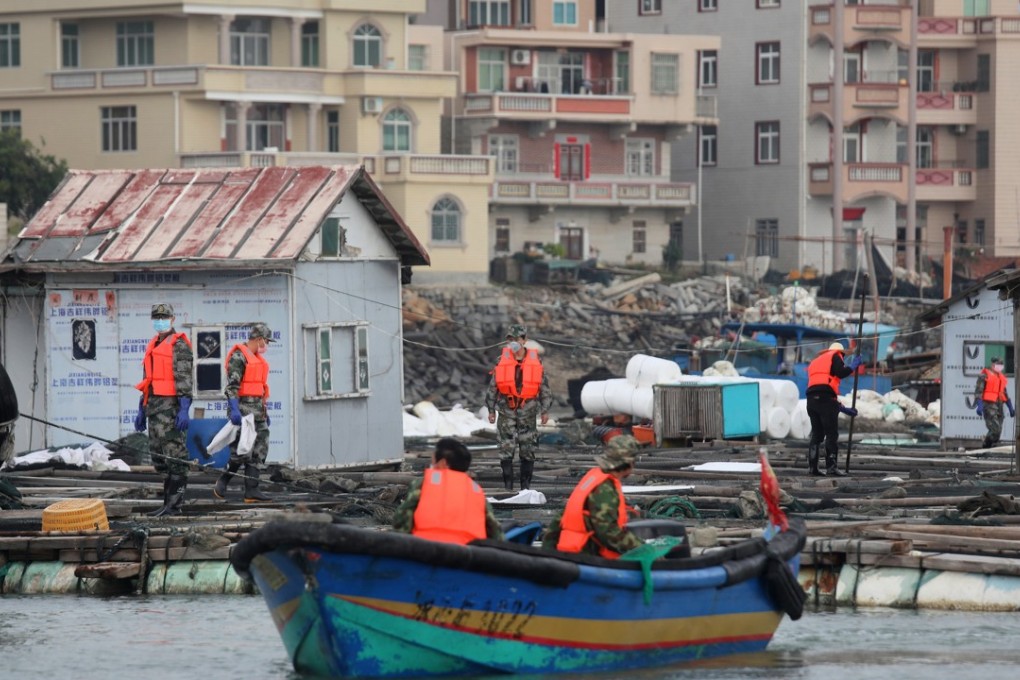Coastal villagers count the cost of southeast China toxic chemical spill
- Fish farmers fear they face a protracted and difficult fight for compensation after a leak devastated their stocks
- One local reports losing a year’s worth of takings following Sunday’s leak

Xiao Meiru and his family fear they lost a year’s earnings last Sunday after a toxic chemical leak devastated their fish farm in southeast China.
Now Xiao and other families living in the coastal village of Xiaocuo in Fujian province are banding together to fight for compensation but worry they will get bogged down in protracted legal wrangling.
Some of them are holding out until their losses are covered in full, but others such as Xiao want to secure partial recompense as quickly as possible.
“I’ve got a family to feed, so we really need the compensation” said Xiao, who is seeking an initial payment of 1,000 yuan (US$145) for each cage of fish lost, around a tenth of the total value.
“I was proposing that [we] get part of the money first and then discuss the full package with the liable company. But people are worried that if they agree, that money will be all they can get.”